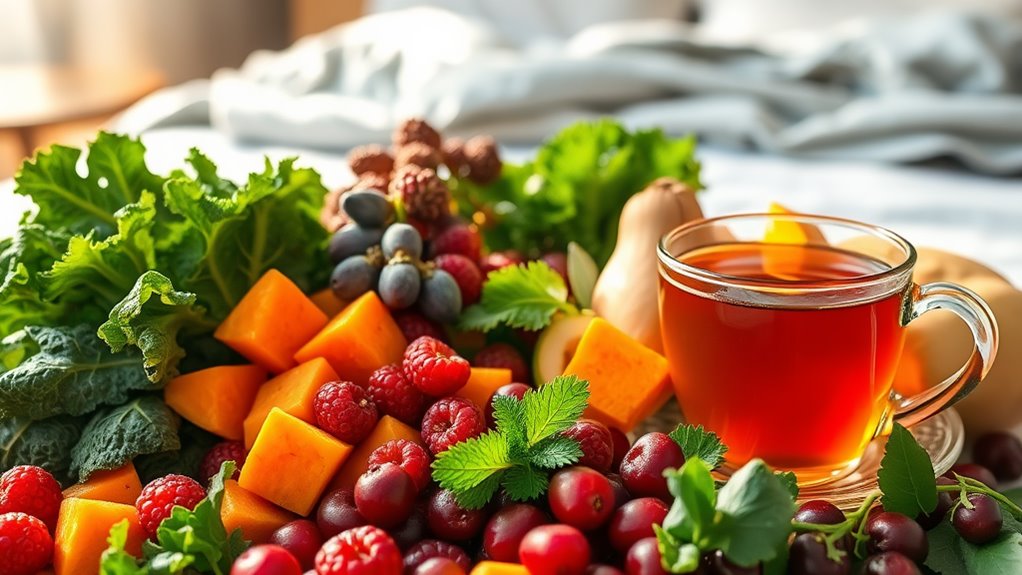Can Eating the Right Foods Improve Your Sleep and Mood.
You might not realize how much your diet impacts your sleep and mood. The foods you choose can either help you relax at night or keep you tossing and turning. By understanding the connection between nutrition and your emotional well-being, you can make smarter choices. Curious about which foods can lead to a more restful night and a brighter day? Let’s explore the key players in your pantry that could make all the difference.
The Connection Between Nutrition and Sleep Quality
When you prioritize what you eat, you mightn’t realize how deeply it influences your sleep quality.
Your diet directly impacts your mood and overall well-being. Eating nutrient-rich foods can help stabilize your blood sugar and promote restful sleep, while unhealthy choices might leave you tossing and turning.
Foods That Promote Better Sleep
Several foods can significantly enhance your sleep quality and help you wake up feeling refreshed.
Incorporating foods like almonds, cherries, and fatty fish into your diet can make a real difference. These options are rich in sleep-promoting nutrients.
Nutrients That Boost Mood
Although your diet might seem unrelated to your emotional well-being, the right nutrients can play a crucial role in boosting your mood.
Omega-3 fatty acids, found in fish and walnuts, promote brain health. B vitamins in whole grains and leafy greens help regulate emotions.
Incorporating these foods into your meals can create a sense of connection and uplift your spirits, making you feel more vibrant and alive.
The Impact of Sugar and Caffeine on Sleep and Mood
The foods you choose can significantly affect not just your mood but also your sleep quality.
Consuming high amounts of sugar can lead to energy crashes, leaving you feeling irritable and drained. Caffeine, on the other hand, can disrupt your sleep cycle, making it harder to feel rested.
Creating a Sleep-Friendly Meal Plan
To create a sleep-friendly meal plan, it’s essential to focus on incorporating foods that promote relaxation and reduce stress.
Think whole grains, lean proteins, leafy greens, and healthy fats. Consider adding foods rich in magnesium and tryptophan, like nuts and turkey.
Don’t forget to hydrate!


